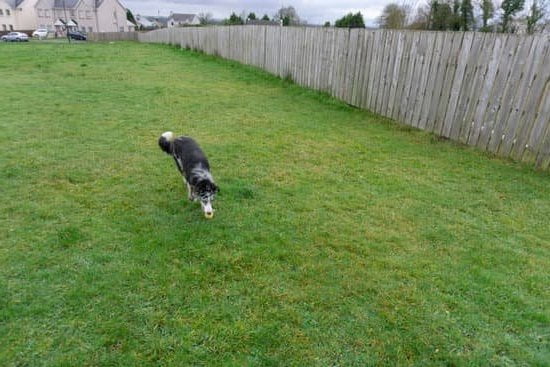Are you considering bringing a Newfoundland dog into your home? If so, you’ll need to understand how to train Newfoundland dog in order to ensure a well-behaved pet. This breed is known for its gentle and loving nature, but their large size and independent streak can present unique training challenges. In this article, we’ll provide you with a comprehensive guide on how to train your Newfoundland, from basic obedience to advanced skills and handling common behavioral issues.
The first step in training any dog is understanding the breed’s history, characteristics, and temperament. The Newfoundland dog has a fascinating history as a working breed that excelled in water rescue missions. Their loyal and sweet nature makes them excellent family pets, but it’s important to recognize their potential stubbornness and independence. With this understanding, you can tailor your training approach to suit your Newfoundland’s unique needs.
Setting up a consistent training schedule is crucial when it comes to training a Newfoundland dog. We’ll discuss the importance of frequency, consistency, and patience in your training sessions. From basic obedience commands like sit and stay to advanced skills such as agility and water rescue, we’ll cover all aspects of training your Newfoundland.
Additionally, we’ll explore how positive reinforcement techniques can be used effectively with this gentle giant, along with ways to address common behavioral issues such as drooling and separation anxiety. And finally, we’ll provide you with resources and tools for additional support in your training journey.
Setting Up a Training Schedule
Setting up a solid training schedule is crucial when it comes to training your Newfoundland dog. This breed is known for being highly trainable, but they also have a gentle and often stubborn temperament. Therefore, it’s important to establish a consistent routine that emphasizes patience and positive reinforcement.
Frequency
Newfoundlands thrive on routine, so setting aside regular training sessions each day is essential. Aim for short, frequent training sessions rather than long, infrequent ones. Training your Newfoundland for about 10-15 minutes at a time, two to three times a day will yield better results than trying to train for an hour once a week.
Consistency
Consistency is key when it comes to training any dog, and Newfoundlands are no exception. It’s important to use the same cues and commands consistently throughout their training. Consistency also applies to the entire family or household – everyone should be on the same page with how they interact and train the dog to avoid confusion.
Patience
Training a Newfoundland dog requires extra patience due to their gentle nature and potential stubbornness. While these dogs are quick learners, they respond best to calm, patient guidance. It’s important not to become frustrated or lose your cool during training sessions as this can have a negative impact on your dog’s progress. Remember that every dog learns at their own pace, so being patient is key in developing a strong bond with your Newfoundland through training efforts.
Basic Obedience Training
Newfoundlands are known to be intelligent and eager to please, making them relatively easy to train. However, it is essential to start with basic obedience training to establish a good foundation for more advanced skills. This section will focus on the key aspects of basic obedience training for your Newfoundland, including sit, stay, come, and leash training.
Sit Training
One of the first commands you should teach your Newfoundland is the “sit” command. Start by holding a treat close to your dog’s nose and then slowly move your hand up, allowing their head to follow the treat and causing their bottom to lower. Once they are in the sitting position, say “sit” and give them the treat as a reward. Repeat this process several times until they start associating the word “sit” with the action.
Stay Command
Teaching your Newfoundland the “stay” command is crucial for their safety and obedience. Begin by commanding your dog to sit, then hold out your palm toward them while saying “stay.” Take a few steps back and if they stay in place, reward them with a treat and praise. Gradually increase the distance and duration before giving the reward.
Come When Called
Once your Newfoundland has mastered sitting and staying on command, it’s time to work on their recall or “come when called.” Use a cheerful tone of voice when calling your dog’s name followed by the “come” command. When they respond correctly, make sure to reward them with treats and praise. It’s important that you only use positive reinforcement during this training so that your Newfoundland associates coming when called with positive experiences.
Leash Training
Newfoundlands are large and powerful dogs, so proper leash training is essential for both their safety and yours. Begin by getting them used to wearing a collar or harness before introducing the leash. Start by walking them inside before progressing to outdoor walks where there may be more distractions. Use treats and praise to encourage good behavior while on the leash, gradually working towards loose-leash walking without pulling.
Overall consistency, patience, and positive reinforcement are key components of successful basic obedience training for Newfoundlands. With dedication and practice, you can successfully train your gentle giant in these essential skills which will form a strong base for further training endeavors such as agility or water rescue skills.
Advanced Training
Newfoundland dogs are known for their strength, intelligence, and natural abilities in water. Advanced training for this breed goes beyond basic obedience and involves activities that take advantage of their unique characteristics. Agility training can help improve their physical coordination and confidence, while tracking exercises allow them to use their strong sense of smell for a purpose. Water rescue skills training is especially beneficial considering the breed’s history as working dogs along the Newfoundland coast.
Agility training involves setting up obstacle courses and teaching your Newfoundland to navigate through them with speed and precision. This type of training not only provides physical exercise but also mental stimulation by requiring problem-solving skills. Tracking exercises capitalize on the Newfoundland’s excellent sense of smell by encouraging them to follow scents in various environments. It is important to start with simple tracks and gradually increase difficulty as they progress.
Water rescue skills come naturally to Newfoundland dogs due to their webbed feet, waterproof coat, and muscular build. This type of training focuses on teaching them how to swim efficiently, tow a person in distress, and navigate through rough waters. Utilizing positive reinforcement techniques such as treats, praise, and play during all these advanced training activities will encourage your Newfoundland to enjoy learning new skills.
| Activity | Benefit |
|---|---|
| Agility Training | Improves physical coordination and mental stimulation |
| Tracking Exercises | Utilizes their strong sense of smell in various environments |
| Water Rescue Skills Training | Teaches efficient swimming, towing people in distress, and navigating rough waters |
Socialization
The Newfoundland breed is known for its gentle nature and strong bond with its family. However, in order to ensure that your Newfoundland is well-adjusted and comfortable in different situations, it is important to focus on socialization from an early age. Socialization is the process of introducing your dog to various environments, people, and other animals in a positive manner.
One aspect of socialization involves exposing your Newfoundland to different environments such as parks, beaches, and urban settings. By gradually introducing your dog to new surroundings, you can help them feel at ease in different places and reduce the likelihood of fear or anxiety in unfamiliar locations. Additionally, interacting with a variety of people will also help your Newfoundland become more confident and friendly towards strangers.
It’s important to remember that socialization should be a gradual process and always done at the dog’s pace. Forcing a Newfoundland into overwhelming situations can have the opposite effect and lead to fear or aggression. When approaching socialization, it’s crucial to remain patient and attentive to your dog’s body language, always providing reassurance and positive reinforcement during these experiences.
| Strategy | Importance |
|---|---|
| Exposing Newfoundlands to different environments | Reduces fear or anxiety in unfamiliar locations |
| Interacting with a variety of people | Helps Newfoundlands become more confident and friendly towards strangers. |
Positive Reinforcement Techniques
Positive reinforcement is an essential technique when training a Newfoundland dog. This breed responds well to rewards and positive feedback, making it important for owners to understand how to effectively use treats, praise, and play during training sessions. When using treats, it’s important to choose high-quality, tasty treats that your Newfoundland will be motivated by. It’s also crucial to not overdo the treats, as this can lead to weight gain and potential health issues.
In addition to treats, praise plays a significant role in reinforcing good behavior in Newfoundland dogs. These gentle giants thrive on their owner’s approval and are eager to please. Verbal praise in the form of a happy tone of voice, petting, and even belly rubs can go a long way in motivating and rewarding your Newfoundland during training.
Apart from treats and praise, incorporating play into your training sessions can also be highly effective for Newfoundland dogs. These playful and energetic dogs enjoy interactive games such as fetch or tug-of-war. By integrating play into the training process, you can make learning fun for your Newfoundland while strengthening the bond between the two of you. Incorporating these positive reinforcement techniques with consistency and patience will undoubtedly contribute to successful training outcomes for your beloved Newfoundland dog.
By implementing positive reinforcement techniques involving treats, praise, and play into your Newfoundland dog’s training regimen, you can expect better engagement, faster learning, and improved behavior from this unique breed. Remember that every dog is different, so it’s essential to adapt your approach based on your individual dog’s preferences and responses during training sessions.
Handling Common Behavioral Issues
Newfoundlands are known for their gentle nature and sweet temperament, but like any dog breed, they can exhibit certain behavioral issues that need to be addressed through training. Common behavioral issues that Newfoundland owners may encounter include drooling, stubbornness, and separation anxiety.
Drooling is a typical trait of the Newfoundland breed due to their large, jowly mouths. While it may not be possible to completely eliminate this behavior, there are ways to manage it. Providing your Newfoundland with a diet that reduces excessive salivation and wiping their mouth regularly can help minimize drooling in everyday situations.
Stubbornness is another behavioral issue that owners of Newfoundlands may face during training. As a highly intelligent breed, Newfoundlands can sometimes exhibit stubborn behavior when they are unsure or uninterested in the task at hand. To address this issue, it is important to use consistent and patient training methods, such as positive reinforcement techniques and using treats or praise to motivate your dog.
Separation anxiety is a common problem in many dog breeds, including Newfoundlands. These dogs form strong bonds with their families and can become distressed when left alone for extended periods.
Training your Newfoundland from an early age to be comfortable with alone time and providing them with mental stimulation in the form of toys or interactive games can help alleviate separation anxiety. Additionally, gradually increasing the time spent away from your dog and creating a calm environment when leaving or returning home can aid in managing this issue.
By addressing these common behavioral issues through proper training and management techniques, owners can ensure a happy and well-adjusted Newfoundland companion.
Exercise and Mental Stimulation
Newfoundlands are large, muscular dogs that require plenty of exercise to keep them physically and mentally healthy. Here are some activities you can incorporate into your Newfoundland’s routine to ensure they stay engaged and fulfilled:
1. Daily walks: Newfoundlands thrive on regular exercise, so make sure to take them for daily walks. Aim for at least 30-60 minutes of brisk walking to keep them physically fit.
2. Swimming: Given their love for water, swimming is an excellent form of exercise for Newfoundlands. Whether it’s in a pool, lake, or the ocean, swimming provides a low-impact workout that’s easy on their joints.
3. Interactive toys: Engage your Newfoundland’s mind with interactive toys such as puzzle feeders or treat-dispensing toys. This will not only provide mental stimulation but also help prevent boredom and destructive behaviors.
4. Obedience training sessions: Incorporate short training sessions into your daily routine to keep your Newfoundland mentally stimulated. Teach them new commands or work on reinforcing existing ones to keep their mind sharp.
5. Outdoor activities: Consider taking your Newfoundland hiking, jogging, or even participating in agility training or tracking exercises. These activities not only provide physical exercise but also challenge their problem-solving abilities.
By incorporating these activities into your Newfoundland’s routine, you can ensure that they remain both physically and mentally engaged, leading to a happier and healthier dog overall. Remember to always consider your dog’s individual needs and consult with a veterinarian before starting any new exercise regimen.
Training Resources and Tools
In conclusion, training a Newfoundland dog requires a deep understanding of the breed’s history, characteristics, and temperament. Setting up a consistent training schedule with patience is essential for effectively teaching basic obedience commands such as sit, stay, come, and leash training. As the training progresses, advanced skills in agility, tracking, and water rescue can be introduced to fulfill the Newfoundland’s natural abilities.
Socialization is also a crucial aspect of training, as it exposes the Newfoundland to different environments and people. Positive reinforcement techniques using treats, praise, and play are highly effective in motivating these gentle giants to learn and obey commands. It is important to address common behavioral issues such as drooling, stubbornness, and separation anxiety with patient and consistent training.
Additionally, providing ample exercise and mental stimulation through various activities will keep your Newfoundland physically and mentally engaged. Utilizing training resources such as books, videos, and professional trainers can provide additional support for both the owners and their dogs throughout the training process. By following these steps and utilizing available resources and tools, anyone can effectively train their Newfoundland dog to be well-behaved and responsive.
Frequently Asked Questions
Are Newfoundland Dogs Easy to Train?
Newfoundland Dogs are known to be intelligent and eager to please, which can make them relatively easy to train compared to other breeds. However, they also have a stubborn streak, so consistent training with positive reinforcement is key for success. Patience, consistency, and firm yet gentle guidance are important when training a Newfoundland Dog.
How Do You Discipline a Newfoundland Puppy?
When disciplining a Newfoundland puppy, it’s important to establish yourself as the pack leader while still maintaining a gentle approach. Positive reinforcement techniques such as rewards for good behavior and redirection from undesirable behaviors tend to work well with this breed. Harsh punishments or physical discipline can be counterproductive and damage the trust between you and your puppy.
What Are the Behavior Issues With Newfoundland Dogs?
Some behavior issues known to occur with Newfoundland Dogs include separation anxiety, drooling, and excessive barking. Their size and strength can also be challenging if not properly managed through training and socialization.
Additionally, their friendly nature may lead to overenthusiastic greetings or jumping up on people if not addressed early on in their development. Consistent training, socialization, and positive reinforcement can help address these behavior issues effectively.

Welcome to the blog! I am a professional dog trainer and have been working with dogs for many years. In this blog, I will be discussing various topics related to dog training, including tips, tricks, and advice. I hope you find this information helpful and informative. Thanks for reading!





